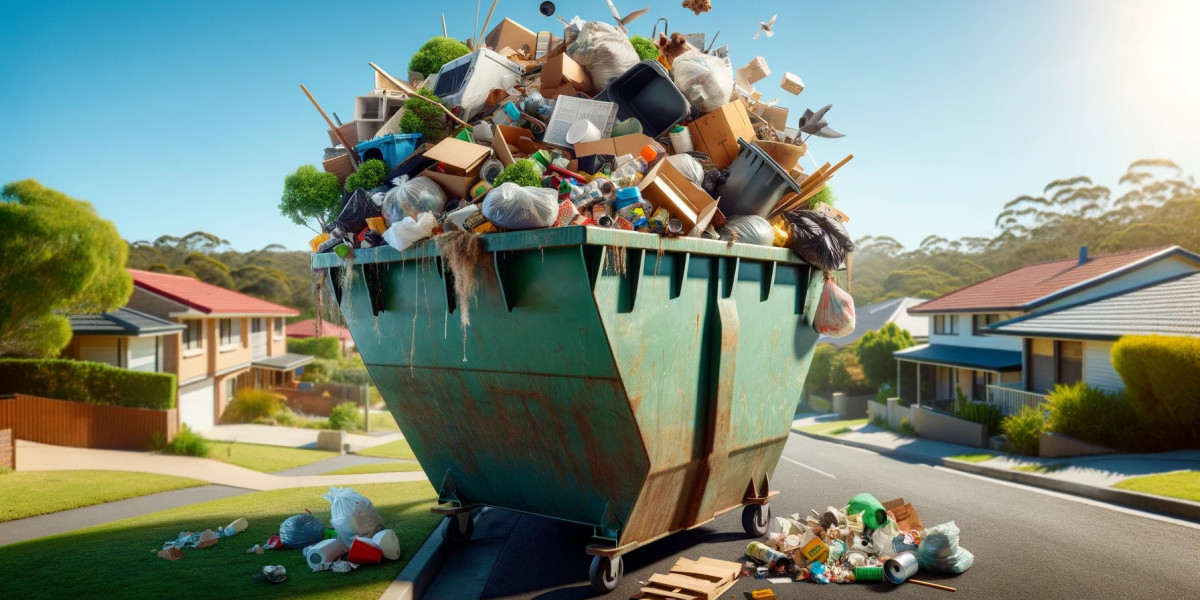1. Safety Hazards
One of the most immediate and critical consequences of overloading a skip bin is the risk it poses to safety. Overfilled skip bins can become top-heavy, making them unstable and prone to tipping over. This can be particularly dangerous when the bin is being transported, as a toppled skip bin can cause accidents on the road, potentially leading to injuries or even fatalities.
In addition to the risk of tipping, an overloaded skip bin can also pose a threat to those who need to interact with it. Workers and bystanders can be injured by debris that falls from an overfilled bin. Sharp objects, heavy materials, and hazardous waste that are not properly contained can lead to cuts, bruises, and other injuries. It’s essential to respect the fill lines marked on skip bins to ensure everyone’s safety.
2. Legal and Financial Repercussions
Overloading a skip bin can also result in legal and financial consequences. Most skip bin companies have strict guidelines on how much waste can be loaded into their bins. If these guidelines are not followed, you may face additional charges. Overloaded bins can incur fines from both the skip bin provider and local authorities, especially if the bin causes an accident or environmental damage.
Moreover, insurance companies may refuse to cover any accidents or damages caused by an overloaded skip bin. This means that if your overloaded bin causes a road accident or damages property, you could be personally liable for the costs. Adhering to the proper loading limits can save you from unexpected expenses and legal troubles.
3. Environmental Impact
An overloaded skip bin can also have a significant impact on the environment. When bins are overfilled, waste is more likely to spill out and be scattered by wind or animals. This not only creates an eyesore but also contributes to littering and pollution. Loose debris can end up in waterways, parks, and other natural areas, harming wildlife and disrupting ecosystems.
Furthermore, overloading a skip bin can make it more difficult for waste to be properly sorted and recycled. Waste management facilities have specific processes for handling different types of materials. When bins are overfilled and mixed waste is compacted together, it can hinder the recycling process and lead to more waste ending up in landfills. Proper loading helps ensure that recyclable materials are separated and processed correctly.
4. Damage to Property and Infrastructure
Overfilled skip bins can cause damage to property and infrastructure. When a skip bin is overloaded, the additional weight can be too much for the bin's structure, leading to damage or even collapse. This can result in the need for costly repairs or replacement of the bin. Additionally, the heavy weight can cause damage to driveways, pavements, and other surfaces where the bin is placed.
Transporting an overloaded skip bin can also cause damage to roads and vehicles. The excess weight puts extra strain on the transport vehicle, leading to increased wear and tear, and potentially causing breakdowns. Overloaded bins can also damage the vehicle's hydraulic systems, which are used to lift and transport the bins. This can result in additional costs for repairs and maintenance.
5. Delays and Inconvenience
Overloading a skip bin can lead to delays and inconvenience. Waste removal companies may refuse to pick up an overloaded bin, requiring you to offload the excess waste before they can collect it. This can cause delays in your project schedule, especially if you need to wait for another bin to be delivered.
Furthermore, dealing with an overloaded bin can be time-consuming and frustrating. You may need to spend extra time rearranging or removing waste to comply with loading limits. This can be particularly inconvenient if you are on a tight schedule or have other tasks to attend to. By following proper loading practices, you can avoid these delays and keep your project running smoothly.
6. Increased Costs
Another consequence of overloading a skip bin is the potential for increased costs. Overloaded bins may require additional trips to dispose of the waste, leading to higher transportation and disposal fees. Some waste removal companies charge extra for bins that exceed the weight or volume limits, and these charges can add up quickly.
Additionally, if your overloaded bin causes damage to the bin itself or to the transport vehicle, you may be liable for the repair costs. This can significantly increase the overall cost of your waste removal. By adhering to the recommended loading limits, you can keep your costs under control and avoid unexpected expenses.
7. Community and Aesthetic Impact
Overloaded skip bins can negatively impact the community and local aesthetics. An overfilled bin can be an eyesore, detracting from the appearance of your property or neighborhood. This can be particularly concerning in residential areas where maintaining a clean and tidy environment is important for community pride and well-being.
Additionally, waste that spills out of an overloaded bin can attract pests and create unpleasant odors. This can affect the quality of life for those living nearby and lead to complaints from neighbors. By keeping skip bins within their proper limits, you help maintain a clean and pleasant environment for everyone.
Compliance with Regulations
Compliance with regulations is another important aspect to consider when loading a skip bin. Different areas have specific regulations regarding waste disposal and transportation. Overloading a skip bin can lead to violations of these regulations, resulting in fines and other penalties. For instance, local authorities in Ellenbrook, WA, have specific guidelines for skip bin usage to ensure public safety and environmental protection. They want to ensure skip bins Ellenbrook WA are not overloaded and stay in compliance with these regulations.
Non-compliance can also affect your reputation, especially if you are a business or contractor. Clients and partners expect you to adhere to best practices and legal requirements. Failing to do so can damage your reputation and lead to a loss of business. It’s important to be aware of and follow all relevant regulations to maintain a positive standing in your community.
Professionalism and Responsibility
Using a skip bin responsibly reflects professionalism and a commitment to responsible waste management. Whether you are a homeowner, contractor, or business owner, demonstrating proper waste disposal practices shows that you care about safety, the environment, and your community. It sets a positive example and encourages others to follow suit.
Taking the time to load skip bins correctly and avoid overloading demonstrates that you take your responsibilities seriously. It shows respect for the waste removal company's guidelines and helps ensure that your waste is handled safely and efficiently. This level of professionalism can enhance your reputation and build trust with clients, partners, and the community.
In conclusion, overloading a skip bin can lead to numerous negative consequences, ranging from safety hazards and legal issues to environmental impact and increased costs. Remember, the easiest way to handle your waste is to follow the rules and load your skip bin responsibly.



